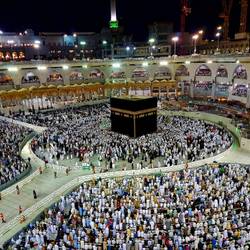Algeria is the largest country in Africa, located in the northern part of the continent, with a long coastline along the Mediterranean Sea and the vast Sahara Desert in the southern part. The country is known for its diverse natural beauty, ranging from mountains and highlands to breathtaking deserts. Some of the major cities in Algeria that serve as important centers include Algiers, the capital, which is also the political and economic hub of the country, and Oran, known for its vibrant nightlife and rich culture. Additionally, there is Constantine, a city perched on dramatic cliffs with a long history, and Annaba, known for its beautiful beaches and Roman archaeological sites.
Before planning a trip to Algeria, there are several things you need to prepare to ensure a smooth journey. From understanding the visa requirements that need to be fulfilled to knowing the climate conditions that may affect your travel experience, every detail should be considered. This article will discuss various things you need to know before you go, including information about the visa process, the best time to visit, and other factors that will make your trip to Algeria more comfortable and enjoyable.
Read more: Travel Advisory: Mauritius Travel Guide
Algeria Visa Requirements
Indonesian travelers planning to visit Algeria are required to obtain a visa. Algeria does not offer visa-free access for Indonesian citizens, so travelers must arrange their visa before departure.
The most common type of visa for tourists is the tourist visa, allowing short-term visits for tourism purposes. This visa is typically valid for 30 days, though the duration may vary depending on the latest policies of the embassy. Algeria does not provide visa exemptions for Indonesian visitors.
Visa Application Process for Indonesian Travelers to Algeria
Indonesian travelers planning to visit Algeria must apply for a tourist visa through the Algerian Embassy. The process includes document submission, payment of fees, and a specified processing time.
Required Documents
The following key documents must be prepared:
Fees and Processing Time
The tourist visa fee varies and should be confirmed directly with the embassy. Processing time typically ranges from 7 to 15 working days, depending on policies and document completeness.
Customs Regulations in Algeria
Indonesian travelers should be aware of items they can carry when visiting Algeria. Below are the lists of prohibited and restricted items:
1. Prohibited Items:
2. Restricted Items:
Declaration and Customs Duties
Declare all valuable items, such as jewelry or electronic devices, upon arrival by completing the customs declaration form provided. Submit the form and report these items for official recording to avoid issues upon departure. Customs duties must be paid at the designated counters, with receipts kept for any further inspections.
Currency Limits
Visitors are allowed to carry up to a certain amount, usually around €10,000 or equivalent, without declaration. Amounts exceeding this limit must be reported to customs officials.
By following these guidelines, travelers can ensure a smooth customs process and avoid potential complications during their visit to Algeria.
Entry & Exit Procedures in Algeria
The arrival process in Algeria involves several inspection stages to ensure a smooth and secure entry.
Discover flight with Traveloka
Mon, 2 Feb 2026

Saudia
Jakarta (CGK) to Algiers (ALG)
Start from Rp 8.228.854
Wed, 21 Jan 2026

Turkish Airlines
Jakarta (CGK) to Algiers (ALG)
Start from Rp 11.242.423
Wed, 21 Jan 2026

China Eastern Airlines
Jakarta (CGK) to Algiers (ALG)
Start from Rp 12.610.100
Public Transportation Options
In Algeria, public transportation offers several options. City buses operate in major cities like Algiers, providing affordable routes. Additionally, the metro and tram systems in Algiers offer fast and convenient access. Taxis and intercity trains are also available for long-distance travel.
Local Laws & Culture in Algeria
Algeria boasts a rich culture full of valued customs, and visitors are advised to respect these traditions to maintain good relationships with locals.
Modest clothing is highly appreciated, especially in public spaces and sacred places. Attire covering the shoulders and knees is considered more appropriate, particularly for women. Avoid close physical contact in public, as it may be deemed inappropriate.
Tipping is generally accepted, especially in restaurants and hotels. A common amount is around 10% of the total bill. Observing these etiquette practices reflects respect for local services and traditions.
Laws and Regulations in Algeria
Algeria enforces strict regulations regarding alcohol consumption, drug use, and public behavior to maintain order and uphold social values.
Religious Practices in Algeria
Religion, particularly Islam, plays a significant role in the daily lives of Algerians. Many aspects of everyday life, such as dress codes, work schedules, and prayer times, are influenced by religious values.
Etiquette in Sacred Places and Social Interactions
When visiting mosques or sacred sites, visitors should dress modestly, with clothing covering shoulders and knees. Removing shoes before entering prayer areas is also a sign of respect.
In social interactions, showing respect and politeness is highly appreciated. Avoid discussing sensitive topics like religion or politics. Using common greetings such as "Assalamu'alaikum" demonstrates cultural respect.
Language and Communication in Algeria
Arabic is the official language of Algeria, while Berber is also widely spoken, particularly among the indigenous population. Additionally, French is commonly used in daily life, especially in major cities and for official purposes.
Basic Phrases for Interaction
Using these phrases will make interactions with locals smoother and show respect for their culture. People in Algeria will certainly appreciate your effort to speak basic Arabic or Berber.
Read more: Travel Advisory: Argentina Travel Guide
Safety and Security in Algeria
The safety and security of travelers in Algeria are influenced by several factors, including political conditions and economic situations. Understanding these aspects can help visitors stay alert and better prepared during their trip.
Economic Conditions and Impact on Travelers
Algeria’s economy is developing, but some areas, particularly rural regions, face high unemployment rates. This can contribute to an increased risk of petty crimes in certain locations. By understanding these conditions, travelers can exercise caution when interacting and moving around less-secured areas.
Personal Safety and Crime Risks
Overall, Algeria is a relatively safe country to visit, but travelers should be vigilant against petty theft, particularly in crowded tourist areas. As in any other country, keep valuables in a secure place and avoid carrying large amounts of cash or expensive items. Be cautious in areas known for higher crime rates, especially at night.
Practical Tips for Safety and Security for Indonesian Travelers in Algeria
Ensuring safety during your trip to Algeria is essential, especially by respecting local customs and culture. These tips can help travelers enjoy a safer and more comfortable journey.
5. Stay Updated on Current Situations
Travelers are advised to stay informed about the security situation through local news or embassy announcements. Avoid areas with ongoing demonstrations or political tensions, and follow instructions from authorities if situations escalate.
Health in Algeria
Healthcare access for travelers in Algeria is generally adequate, particularly in major cities such as Algiers, Oran, and Constantine. However, the ease of access may vary depending on the location and type of medical facility required.
Medical Facilities in Major Cities
In Algeria’s major cities, hospitals and clinics are equipped with sufficient medical facilities and experienced doctors. Hospitals in Algiers, the capital, are equipped with modern equipment and can handle a variety of health needs, including emergencies. Private clinics are also available, offering higher service standards, though costs may be higher compared to public hospitals.
In rural or remote areas, access to medical facilities can be more challenging. Hospitals and clinics in these regions are generally limited in number and equipment. Healthcare services may only cover basic treatment, with specialized doctors often unavailable. Travelers planning to visit remote areas are advised to carry personal medications and basic medical supplies as a precaution.
Tips for Accessing Medical Services
With proper preparation, travelers can ensure access to healthcare and maintain their safety during their trip to Algeria.
Vaccinations and Health Checkups
When planning a trip to Algeria, certain vaccinations and health measures are essential to ensure safety during your visit. Below is information on mandatory and recommended vaccinations for Indonesian travelers.
Mandatory Vaccinations
Indonesian travelers entering Algeria are required to present a yellow fever vaccination certificate if arriving from a country at risk for the disease. This internationally recognized certificate is necessary to prevent the spread of yellow fever. Travelers must ensure the certificate is issued at least 10 days before departure.
Recommended Vaccinations
In addition to mandatory vaccinations, the following are highly recommended for added protection:
Additional Health Screenings
Some countries, including Algeria, may require travelers to undergo health screenings upon arrival. These typically include temperature checks and presenting necessary vaccination certificates.
By adhering to these vaccination and health check requirements, travelers can ensure a safer and healthier trip to Algeria.
Emergency Contact Information in Algeria
While in Algeria, knowing emergency numbers is crucial for handling urgent situations. Below is a list of emergency contacts:
Additionally, the Embassy of Indonesia in Algiers provides assistance for Indonesian nationals in need. In emergencies, you can contact the embassy hotline: Indonesian Embassy Hotline in Algiers: +213 560 299802
Weather and Climate in Algeria
Algeria is a country with stunning natural landscapes, rich culture, and a long history. Before traveling, it’s important to understand the climate and natural disaster risks in Algeria. The country is prone to earthquakes, seasonal floods, and extreme weather, particularly in desert areas. Being informed helps travelers prepare for unexpected situations, ensuring a safe and enjoyable trip.
Weather Guide and Best Time to Visit Algeria
Algeria has a diverse climate, ranging from a Mediterranean climate along the coast to a desert climate in the Sahara. Below is an overview of the weather conditions travelers can expect in Algeria.
1. Rainy and Dry Seasons
2. Temperature and Humidity Range
The best time to visit Algeria is between April and June or September and November. During these months, temperatures are cooler, humidity is lower, and the weather is generally favorable for outdoor activities.
Natural Disaster Risks in Algeria
Algeria is prone to natural disasters, particularly earthquakes and floods. Understanding these risks can help travelers prepare better during their trip.
Types of Natural Disasters in Algeria
Travelers may face delays or site closures due to disasters. Earthquakes and floods can also pose health and safety risks, especially in urban areas.
Tips for Facing Natural Disasters in Algeria
Response of Residents and Government
Algerian residents are generally accustomed to dealing with natural disasters, particularly earthquakes and floods. The Algerian government has a civil protection team prepared to respond quickly, providing evacuation assistance and emergency supplies to disaster victims. Local communities also tend to cooperate with authorities during emergencies, ensuring effective disaster management and support efforts throughout affected areas.
Flights Featured in This Article

Hotels Highlighted in This Article

Luminor Hotel Pecenongan Jakarta By WH

Holiday Inn Express JAKARTA WAHID HASYIM by IHG, an IHG Hotel

MaxOneHotels.com @ Platinum Hayam Wuruk Jakarta

favehotel Gatot Subroto
Recommended Articles

Complete Guide to Independent Umrah 2026: How To, Costs, Visa, Hotels, and Itinerary

Museum Multatuli: Menyelami Sejarah Kolonialisme dan Perjuangan Lewat Sastra dan Fakta

Visa Applications Made Simple with Traveloka & SPUN Service

Your Ultimate Shopping Guide: Top Picks for What to Buy in Da Nang

7 best theme parks in Australia with epic rides

Singapore LRT Map: Route, Fare, and Ticketing System













 Facebook
Facebook Instagram
Instagram TikTok
TikTok Youtube
Youtube Twitter
Twitter Telegram
Telegram WhatsApp
WhatsApp
